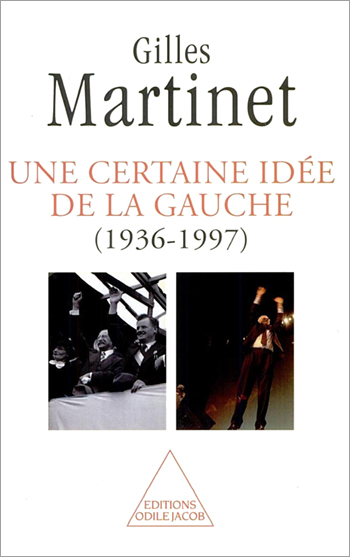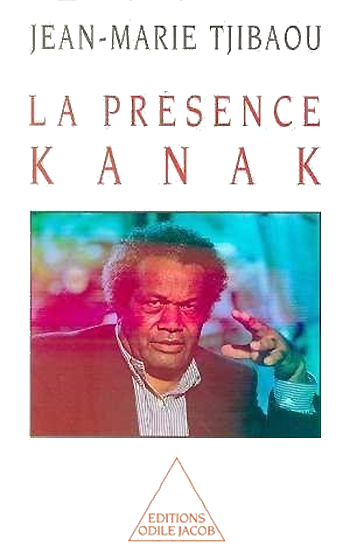Political books All books
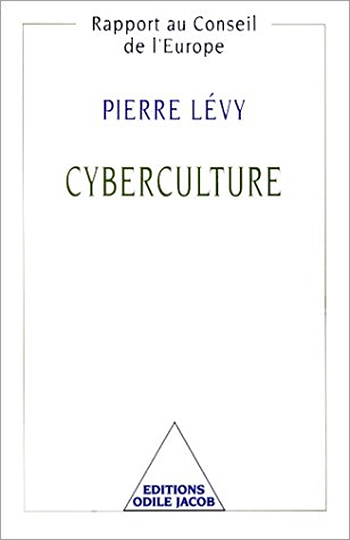
Pierre Lévy
Cyberculture
What is cyberculture? What are the social and cultural implications behind this technical phenomenon? Could it be held responsible for altering our relationship to knowledge? These are some of the questions addressed in Cyberculture, which covers such aspects of new technology as numerisation, navigation, memory, programming, software, virtual reality, multimedia, interactivity, and electronic mail. Written for the non-power user, this is a clear, complete and highly accessible presentation of new technologies, their uses and future stakes. Pierre Lévy is a philosopher who teaches at the University of Paris-VIII, in the hypermedia department.

Denis Jeambar
A State Secret
From a resounding victory, full of promises, to a surprise, humiliating defeat, the presidency of Jacques Chirac didnt manage to astonish the French nation or the world. This book lifts the lid on the plotting and secrets of the presidency. Denis Jeambar is the editor of the Express.
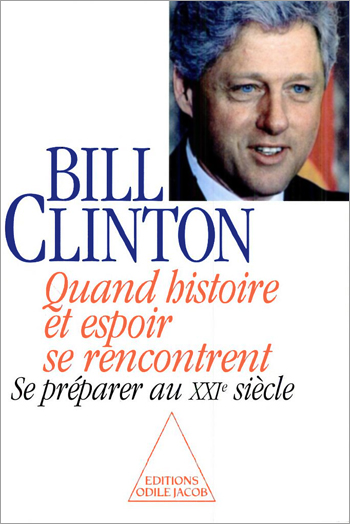
Bill Clinton
Between Hope and History Meeting America's Challenges for the 21st Century
For many people, America remains a model. A model of an economy in full growth, a model of a society which has created millions of jobs, a model of a nation reuniting men and women from the most diverse origins. Today, like before, America demonstrates her amazing capacity to adapt and to bounce right back. For the first time in print, the President of the United States expounds his personal vision of the American dream, a dream which he intends, from this moment forward, to transform into reality. A political document, but also offering many subjects, from education to budgetary concerns, for general reflection.
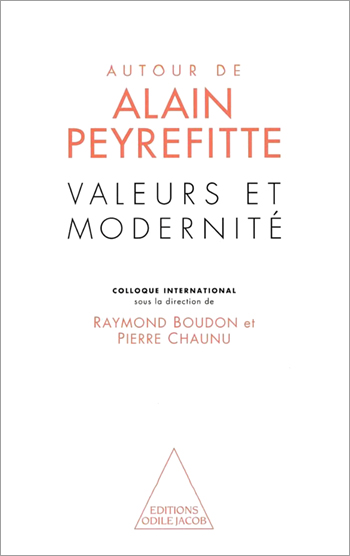
Alain Peyrefitte, Raymond Boudon, Pierre Chaunu
Values and Modernity Expanding on Alain Peyrefitte
With The Society of Confidence, and Of the Economic Miracle, Alain Peyrefitte has illustrated that growth is not primarily founded on the material wealth of a nation, capital, or even on work. Development is intrinsically linked to mentalities and values, which are the essential elements of economic, political and social modernity. Using this thesis as a starting point, the Institute of France organised a conference which brought together economic and technological historians, sociologists, criminologists, and experts from across the world, amongst which were R.Boudon, S.Eisenstadt, D.Landes, and S.Lipset. The wide spectrum of debate runs from the history of religious mentalities (P. Chaunu, J.Delumeau), to penal philosophy (D. Szabo). The comparative outlook of this book allows the reader an insight into the hidden depths of confidence, from Switzerland (J.-F. Bergier), to Japan (Terushi Hara), right through to the Third World (P. Moussa).
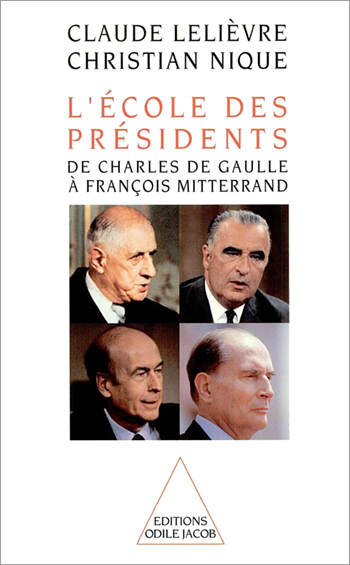
Claude Lelièvre, Christian Nique
The School of Presidents From Charles de Gaulle to François Mitterrand
What kind of education shaped Charles de Gaulle, Georges Pompidou, Valéry Giscard d'Estaing and François Mitterand? Who were their mentors? What was their opinion of school? What role is played in educational politics by a nationalist "Saint-Cyrien", a conservative "Normalien," a liberal from Polytechnique or ENA, or a socialist from Sciences-Po? How did their different educational experiences affect their actions and their views? A story of four great men who were once just schoolboys like everyone else.
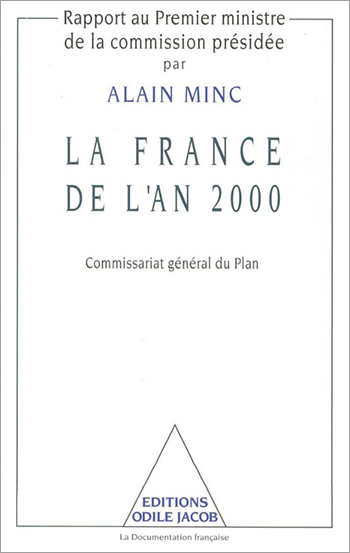
Alain Minc
France in the Year 2000
What are the biggest challenges of the year 2000? What great economic and social actions will France have to take in the years to come? The answer: assuring growth without inflation capable of favoring employment; making the state-providence more efficient, and adapting its productive system to the internationalization of trade. Edouard Balladur asked Alain Minc to address these key problems of French society and this work, an instant classic, will provoke reflection from a wide array of different personalities. A co-publication with La Documentation Francaise.

